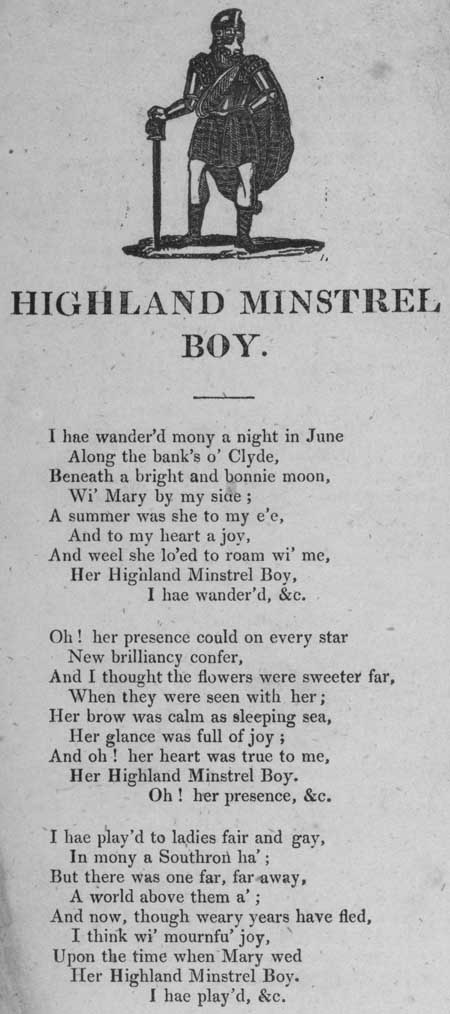Commentary
Verse 1: 'I hae wander'd mony a night in June / Along the bank's o' Clyde, / Beneath a bright and bonnie moon, / Wi' Mary by my side; / A summer was she to my e'e, / And to my heart a joy, / And weel she lo'ed to roam wi' me, / Her Highland Minstrel Boy, / I hae wander'd, &c.' This ballad is narrated by the Highland minstrel boy of the title, and is a tribute to a girl called Mary. In the final verse it becomes apparent that the narrator is recently widowed, and he is remembering his late wife as she was when he first knew her many years before. The Highlander became a conventional romantic figure in many areas of the arts in the late-eighteenth and nineteenth centuries after the publication of James Macpherson's 'Ossian' poems and Sir Walter Scott's 'Waverley' novels. This song made its way to Australia where it became 'Her Ireland minstrel boy'. It is better known under the titles of 'Banks o' Clyde' or 'Bonnie Moon'. Early ballads were dramatic or humorous narrative songs derived from folk culture that predated printing. Originally perpetuated by word of mouth, many ballads survive because they were recorded on broadsides. Musical notation was rarely printed, as tunes were usually established favourites. The term 'ballad' eventually applied more broadly to any kind of topical or popular verse.
View Transcription | Download PDF Facsimile
|
 |
Probable period of publication:
1870-1890 shelfmark: L.C.1269(122a)
 View larger image
View larger image
|


